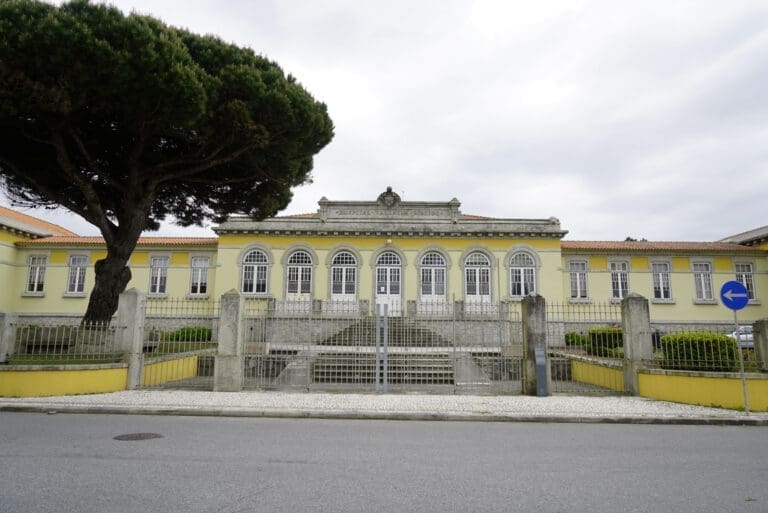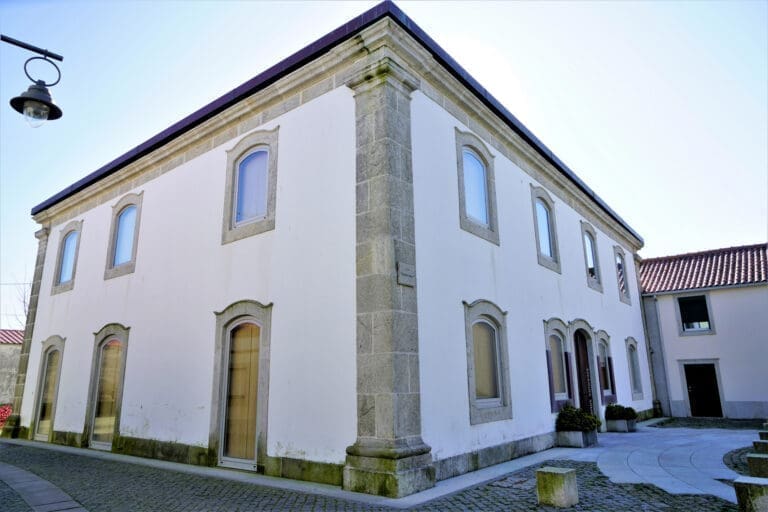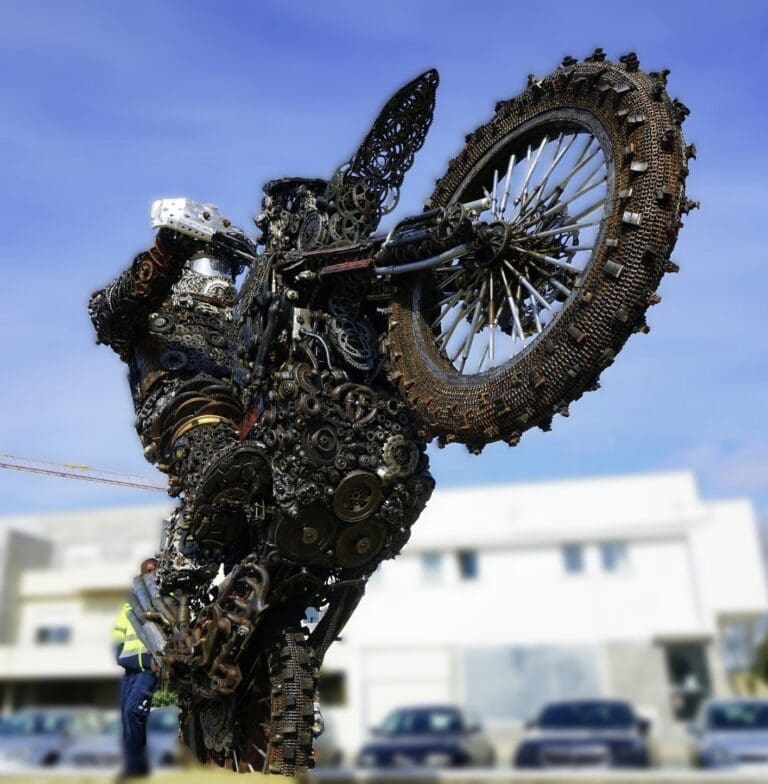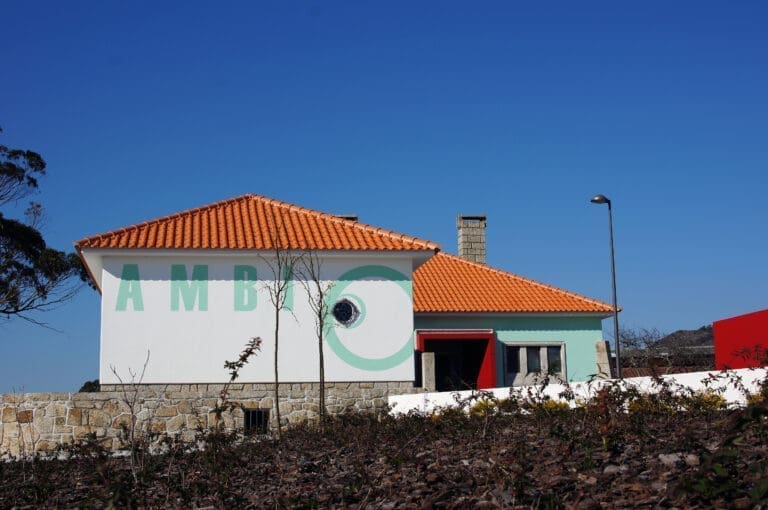The beach of Apúlia, nowadays, is mainly known as a summer area. However, the bay, given its good natural conditions, has been exploited since the Roman presence in the Peninsula. When going to the beaches to bathe became part of everyday life, Apúlia beach gained fame for the high levels of iodine recorded. Today, due to the excellence of the bay, Apúlia beach is still an invitation to spend a vacation facing the Atlantic.
The windmills of this beach are one of the interesting reasons to visit it. They are windmills built in granite and schist, of circular plant and conical shape, to make the most of the available wind. Nowadays these mills have lost their original function.
In Apulia, besides salt and fish, the exploration of sargassum was one of the most important agromaritime activities. Testimony of a time when the collection of this product was an important task are the tents, installed directly on the dune, and where the collection tools were kept. The sargassum, collected from June until the end of the year and dried in the sun, was used as organic fertilizer for the soil.

 Esposende, Northern Portugal
Esposende, Northern Portugal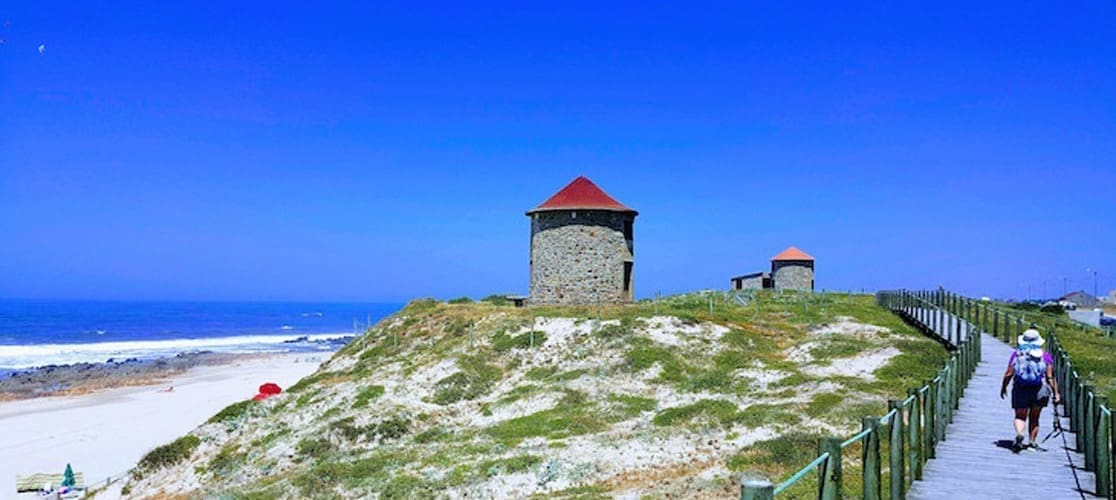
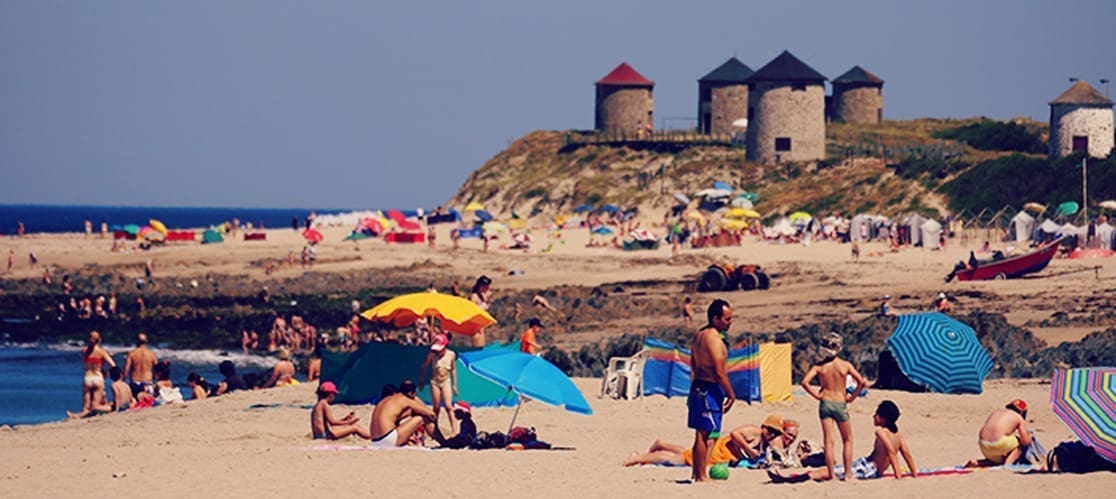





 Página Web
Página Web 
